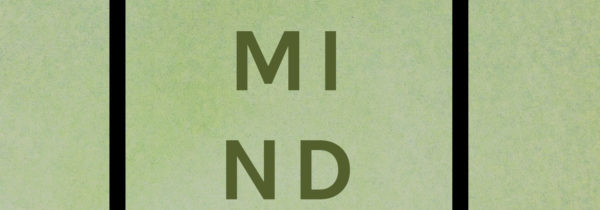Why Literature?
To My Mind, or Kinbotes: Essays on Literature
Whiskey Tit Press, VT & NY 2021
Omar Sabbagh’s To My Mind is a rarity in today’s literary world: an erudite, serious examination of literature that is outside of the academic mainstream, while drawing deeply from that well. Sabbagh is a poet and fiction writer who holds multiple degrees in creative writing, English literature and philosophy from Oxford University, the University of London, and King’s College, and he teaches English Literature at the American University in Dubai. All of these perspectives inform his work, especially the last, as he teaches undergraduates, not PhD students, and cannot afford to lose their interest. Thus he has a cosmopolitan portfolio and outlook. But, other than a few Americans, a Palestinian poet and, incredibly, fellow Whiskey Tit author Svetlana Lavochkina, whose 2 books he reviews, his focus is entirely English.
In these essays Sabbagh is drawn to the place where theology and philosophy cross paths and inform each other and the aesthetic choices and thematic arguments of his authors. The authors themselves are often writers that have fallen off the radar of contemporary literary discourse and fashion, GK Chesterton, Hillaire Belloc, Ford Maddox Ford, Lawrence Durrell, and Henry Miller. He locates in their work their own struggle to situate themselves in a modern world that is alienating. In the case of a writer like Ford, a self-described ‘17th century man’, this involves considerable paradox, as he is an acknowledged architect of English Modernism and practitioner of literary Impressionism. The argument is that between totalizing system, as exemplified by Hegel, or Catholicism, and contingent nihilism. How do writers resist reduction to this binary and locate their ideas along a continuum? The seemingly random, contingent world we all occupy, which has a robust philosophical defense in modern and post-modern theory, disturbs what seems to be an innate, human sense of time and place, past and a future, selfhood and history, whether this is a divine scheme or not. Ford and Durrell intentionally examine and interrogate notions of time and subjectivity, while a writer like Chesterton settles for good old fashioned common sense only after experiencing a similar, intense personal intellectual crisis. Sabbagh does not discuss these writers’ politics much, if at all, and it is only in the fascinating essay on Palestinian poet Ghassan Zaqtan that he tips his hand slightly with a masterful critique of both the Israeli neo-Apartheid state and Zaqtan’s response, as a poet, to exile and oppression.
These are not essays in theory, but they use theory as a tool, and Sabbagh’s toolkit is broad and diverse. Kant, Hegel, Heidegger, and Nietzsche all get a say and he often, with Heidegger and Nietzsche anyway, teases out aspects of their thought that are useful to his purposes and also more complex than the common academic memes. Freud, Lacan, Derrida, Zizek, Ermmano Bencivenga, Gillian Rose, Bernard Lonergan, Theodor Adorno, and Edward Said are in there too, and Sabbagh makes good use of them, relating theory to the weave of the text itself. The author’s text is primary; it doesn’t exist to prove a philosophical or theological doctrine but rather, show how writers use the language and analysis of both to work out what are often personal problems. He does not try to force literature into a box but affirms his belief that language and the arts exist and exist for a reason, as an essential facet of the human project, of culture, and of individual spiritual and psychological development.
A good case in point is his essay on TS Eliot, where he reads The Wasteland and The Hollow Men in particular as poems of personal crisis. This interpretation, as opposed to reading the poems as a conservative reaction to the breakdown of traditional society caused by modern science, philosophy, democracy, the technics of impersonal world war and the death of God, explains more, and the view is licensed by Eliot’s letters.
The writing is as vigorous as the thought and as generous too. Omar Sabbagh writes with a sense of humor and his language is playful. He does not indulge in idiosyncratic or simply bad writing as an expression of complexity. It‘s complex enough the way it is. Humor particularly is hardly absent from the tradition (William Empson and Kenneth Burke are often amusing) but it is rare enough to be grateful for its abundance here.
These are generous essays, generous to the authors, to the audience, and to the other writers he draws on. The piece on George Steiner is remarkable. I didn’t know Steiner wrote fiction. Sabbagh’s essay is about this tradition of the literary artist who also writes criticism, such as Empson, Burke, Wilson, and Eliot did. Sabbagh is here allying himself to a tradition that we ought to celebrate. To My Mind is an important and intellectually entertaining excursus into some little visited spots of the literary firmament, as well as a reminder that great writing continues to be produced, and is worthy of a thorough philosophical investigation by a sympathetic and eclectic critic without an axe to grind or even a scalpel. Just a pair of highly attuned ears and a probing, astonishingly well-read mind.




